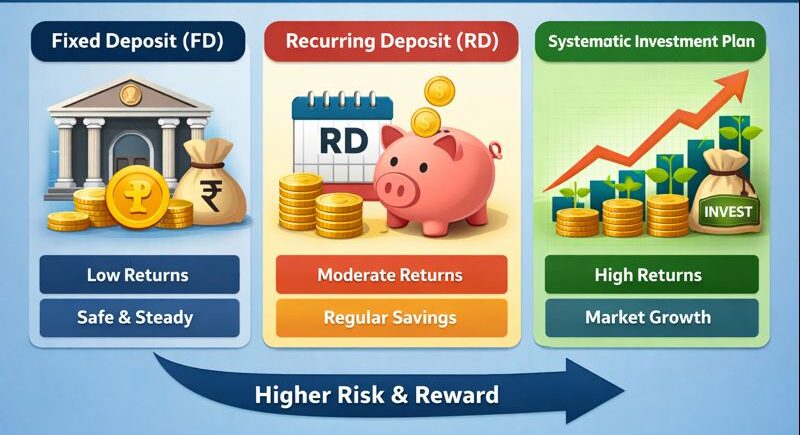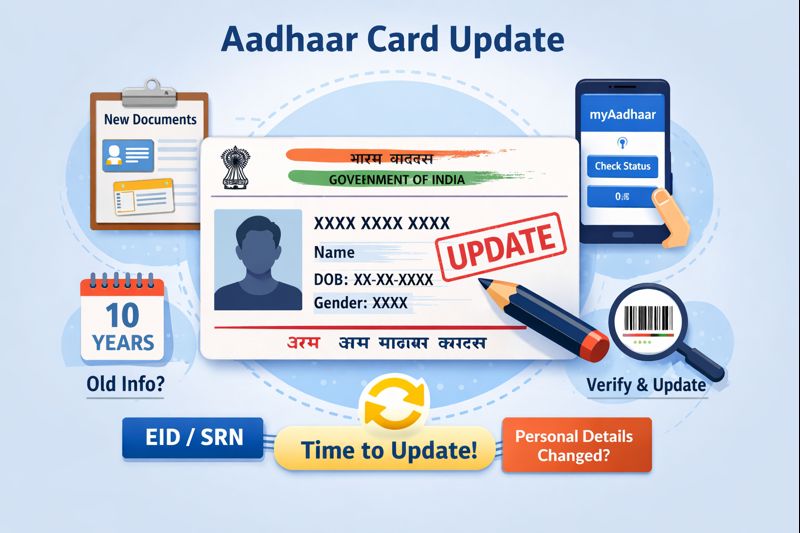Systematic Investment Plans (SIPs) have become extremely popular in recent years, especially among retail investors who want to invest regularly in mutual funds. However, new data indicates that many people are now opting to terminate their SIPs — and experts suggest that in certain situations, this can be the right move.
As per the Association of Mutual Funds in India (AMFI), around 44.03 lakh SIPs were closed in September 2025, up from 41.15 lakh in August 2025, which is a jump of nearly 7% in just one month.
For comparison, 40.31 lakh SIPs were discontinued in September 2024. This steady rise indicates that investors are rethinking their financial plans due to market ups and downs and changes in their personal money needs.
Data Shows More Investors Are Stopping Their SIPs
Recent data shows that SIP discontinuations have been rising and falling each month, indicating that investors are actively re-evaluating their financial plans. Here’s the month-wise breakup:
- June 2025: 48.16 lakh SIPs were closed
- July 2025: 43.04 lakh SIPs were closed
- August 2025: 41.15 lakh SIPs were closed
- September 2025: 44.03 lakh SIPs were closed
This pattern clearly shows that SIP stoppages have not been steady — they fluctuate based on market conditions, investor sentiment, and personal financial changes. For example, SIP closures dipped in August but rose again in September, suggesting that investors may be reacting to short-term market moves or concerns about economic uncertainty.
Why Investors are Stopping their SIPs?
Although SIPs are meant to be long-term investments that continue through market highs and lows, the latest data shows that more investors are choosing to pause or stop them.
Most financial planners caution against stopping SIPs when markets are weak, since that’s the best time to buy more units at lower prices. But experts also point out that there are valid reasons to take a break from SIPs, such as:
- Loss of income or job instability
- Sudden emergency expenses
- Changes in personal financial goals
- When market risks become uncomfortable for your risk profile
So, stopping a SIP doesn’t always mean you’re panicking — it can be a smart decision when your financial situation changes.
In What Scenarios is stopping your SIP Smart as per the Experts?
Investing through a Systematic Investment Plan (SIP) is widely appreciated for building discipline and reducing the impact of market volatility. However, experts point out that there are certain situations where pausing or stopping a SIP is actually sensible. Below are the expert-backed scenarios where discontinuing a SIP may be justified.
1. When You’ve Achieved Your Financial Goal
A SIP can be stopped once the purpose for which you began investing has been fulfilled.
According to Business Standard, Nehal Mota (Co-founder, Finnovate) says you can stop your SIP when the target is met or when the fund no longer suits your risk profile—such as after a change in fund manager or investment mandate. This avoids unnecessary risk once your required corpus is already secured.
2. When the Fund’s Strategy or Performance Changes
If the fund undergoes changes that no longer match your expectations, stopping may be reasonable.
As Mota highlights, persistent underperformance, a shift in strategy, or a managerial change are valid reasons to reassess your SIP. When your risk appetite or time horizon no longer aligns with the fund’s direction, discontinuing the SIP becomes a practical move.
3. When You Need to Exit Before Reaching Your Target Date
In some cases, exiting early—but gradually—is a smarter choice than an abrupt stop.
Mutual fund expert Vishwajeet Parashar suggests beginning the exit 6–12 months before your goal date (The Economic Times). His advice: book profits step-by-step instead of redeeming everything at once, which helps shield your portfolio from sudden market volatility
4. When Your Financial Situation Changes Significantly
Major life changes or financial strain may require pausing or stopping SIPs.
As reported by The Economic Times, a meaningful drop in income or a large, permanent change in expenses may justify stopping the SIP. For short-term issues, pausing is usually better, as it helps maintain discipline without long-term disruption.
(Moneycontrol notes that pausing may require fresh registration if later cancelled.)
5. When Your Portfolio Needs Rebalancing
If your equity allocation has grown beyond your comfort level, experts recommend pausing equity SIPs.
Mota and other advisers say that redirecting new contributions to debt or other asset classes helps maintain your target asset allocation. This is not market timing, but simple rebalancing to stay aligned with your risk tolerance.
6. When the Fund Is Consistently Underperforming
Long-term poor performance is another signal to review or stop your SIP.
As per Business Standard, if the fund’s returns dip consistently or the strategy no longer fits your goals, it may be better to stop the SIP and switch to a more suitable option, preventing further erosion of your investment.
7. When Pausing Isn’t Effective or Not Allowed
Some fund houses limit SIP pauses or restrict certain frequencies from pausing.
Moneycontrol notes that SIP stoppage can take 10–15 days, and pause facilities may not apply to all SIP types. In such cases, a complete stop—supported by a clear exit plan—might be more practical.
8. When Markets Are High — But Experts Advise Not to Stop for This Reason
Stopping SIPs just because markets are rising is usually discouraged.
Livemint reports that timing the market rarely works, and SIPs are designed to benefit from market ups and downs through rupee-cost averaging. SEBI-registered adviser Deepesh Raghaw stresses that you shouldn’t stop SIPs simply due to high valuations if your asset allocation is still on track.
Business Standard also notes that rebalancing is a better tool than stopping purely based on market levels.
9. When There Is No Real Reason to Stop Midway
Experts strongly warn against stopping SIPs due to panic or impatience.
According to Mint, prematurely stopping SIPs disrupts compounding and weakens long-term wealth creation. Equity SIPs ideally need 7–10 years for optimal results. If your goals and situation remain unchanged, stopping mid-way offers no advantage.
Final Thoughts
Stopping a SIP shouldn’t be done impulsively — but it becomes a sensible choice when you’ve achieved your goal, the fund no longer fits your investment approach, or your personal finances have shifted. Experts emphasize making decisions based on long-term purpose instead of reacting to temporary market ups and downs. Whether you’re rebalancing your holdings, planning an early exit before a goal, or reallocating money to better options, what matters most is taking informed, thoughtful action.







